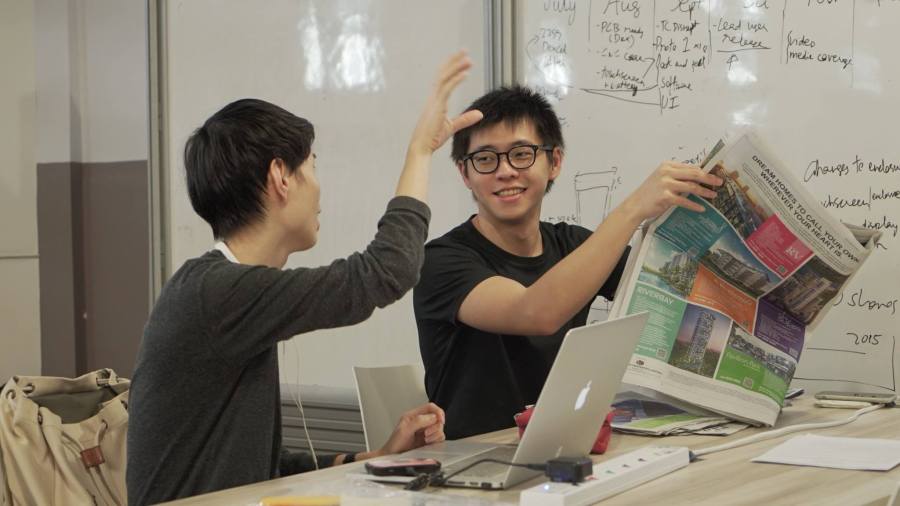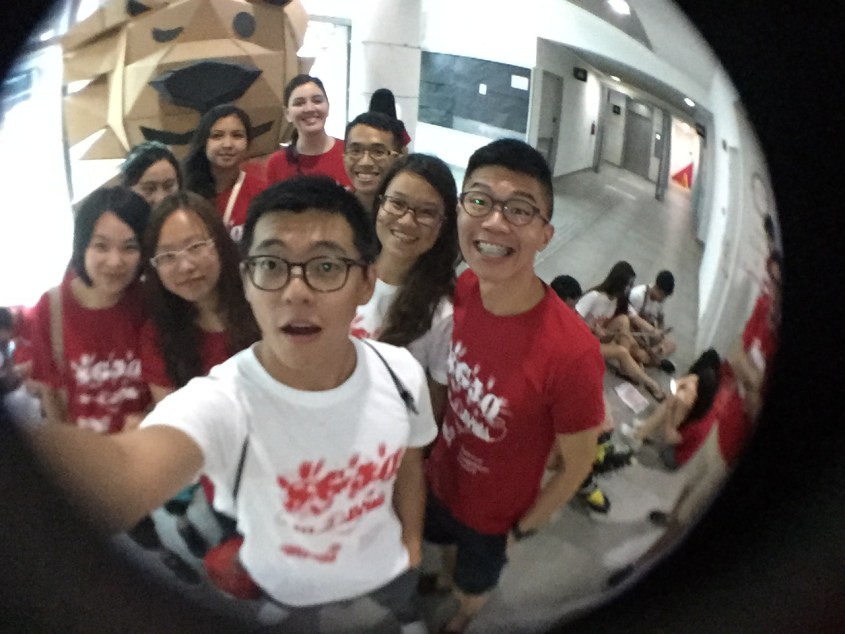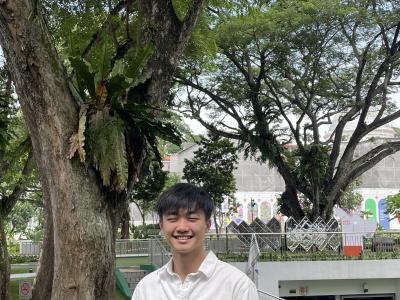
It has been an unforgettable experience.
About a year ago, I was sent an email containing some of the happiest news I have ever received: an offer to study the programme of my first choice at SMU. This, despite not having met the cut-off grades needed to enter.
I was admitted based on my dual interests in urban-planning and technology. Having been previously involved with the running of tech-startups while still a student of real estate studies at Ngee Ann Polytechnic, I figured that some of the most interesting developments in modern society will be made at the intersection of these two disciplines—in smart city technologies.
While most undergraduate programmes offer training in urban planning or computer science, I never really found the right fit until I came across SMU School of Information Systems’ undergraduate programme, which offers students an opportunity to pursue a double major in urban analytics.
Ergo, I found an education that fits perfectly within my sphere of interest. After a couple of interviews (and a short coding test), I was incredibly blessed that the school administrators found me a good fit for SMU.
There really is no magic formula to discretionary admissions; and I am sure each student admitted on a discretionary basis has a story unique to their individual talents or interests. . That said, some basic rules apply. For instance, school administrators want to know if you could thrive academically despite past set-backs. They also want to know if you will be a good fit for the school’s learning environment.
Specifically to SMU, our interactive pedagogy demands that students possess proactiveness toward class participation and group work. If you are all that, and display grit as well as a strong passion for your field of study, the admissions officers will pick up on that.
If you are reading this and have recently been admitted to SMU on discretionary grounds, congratulations and welcome aboard! You’re probably giddy (with joy) right now, with no idea what to expect when the fall semester starts for real. To “soften the ground”, here are a couple of valuable lessons I learnt during my freshman year:
1. ‘Imposter Syndrome’ is Real (but you will learn how to fight it)
I am not even kidding about this. Till today, during my lowest moments, I wonder in fear when the nice people around me will finally wise up, realise that I am a fraud, and take me out of this school. The most insidious part about the Imposter Syndrome is that the fear only compounds whenever you achieve any form of success (academic or otherwise) or confirms itself in the face of failure; thus, leading to an endless cycle of self-doubt and worry.
The panacea to this would be what Harvard Business School Professor Amy Cuddy terms as “presence”, which is the ability to inhabit and trust one’s own capabilities, values, and feelings.
Now, there is no easy way around this, but here at SMU, you will be trained to cultivate a stronger sense of identity and self-worth. Freshman core modules such as Leadership and Team Building (OBHR 001) and Business Government and Society (MGNT 003) will compel you to forge an opinion and a firm stand on global issues that plague the world today. These modules will force you to confront and re-examine your own core values, beliefs, and capabilities. Take these modules seriously, and you will emerge more confident and comfortable in your own skin.
2. “Empty your cup”
This piece of advice came courtesy of Professor Rani Tan, who explained this concept on my first day of school. To meaningfully learn anything, one must start with a beginner’s mind—free of opinions and presuppositions of what you think you may already know about the subject being taught.
This is especially applicable for Information Systems students who may have done some programming in the past, and will be retreading familiar ground on programming basics. Here, you may find yourself having to unlearn years of bad coding habits picked up on Stack Overflow. You may even find yourself struggling, despite having been admitted based on your coding prowess. But this is normal because real understanding and, by extension, learning requires—in equal parts—great humility and effort.
Having prior experience on a subject can be beneficial, but you should never let it get in the way of new learning.
3. Seek out interesting side projects
When I started here at SMU, I made a commitment to “never be boring”, or as a close friend once put it: “never stop doing interesting stuff”. In keeping with that, in my short year here, I have:
- Geohackathon Tournament.
- Headed a team to develop a cost-effective EHR (Electronic Health Record System) adoption model for non-profit healthcare organisations.
- Helped facilitate a community-based learning programme in Little India with HealthServe.

A picture of a tired me on day two of a 48-hour Hackathon!
And my favourite side endeavour by far:
- Started a crowd-sourced online repository for Chinese New Year hate (in good humour of course).
Here, you too will be given a myriad of opportunities and resources to pursue endeavours outside the scope of your school curriculum. You could organise an overseas community service programme, start your own business, or develop the next virtually indispensable mobile app. Whatever the case may be, seize these opportunities to enrich and bring meaning to your student life.
And with that, I wish you nothing but the very best in your next chapter of academic pursuit. The climb ahead will be rough, but the view atop is oh-so-good. See you around school!

I can be contacted at :
Mail - sean.koh.2015@sis.smu.edu.sg
Twitter - @wonkishtofu
To find out more about SMU’s Bachelor of Science (Information Systems), please click here.
Main photo credit: Stanley Chew via stanleycphotography.com


